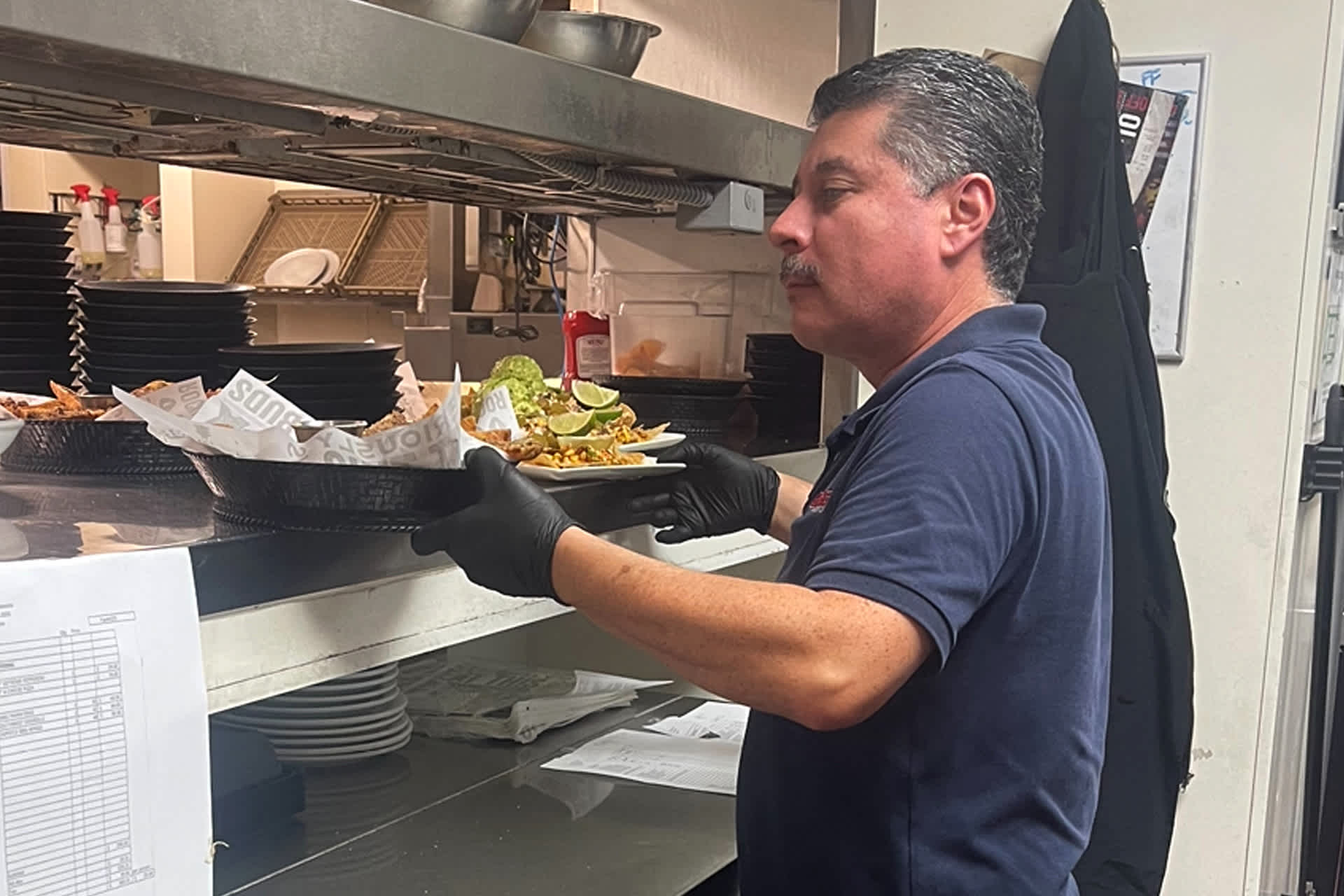At Your Service

Do you like being around food? Do you like being with people? Are you a good problem-solver? Being a restaurant manager might be the perfect career for you.
Your Hot Job spoke with Juan Perez to learn more about this exciting job.
Meet the Manager
Juan Perez didn’t always want to be in the restaurant industry. He went to college to study business. But while he was in school, he had a part time job as a dishwasher. He worked his way up in the kitchen and became a manager. That’s when he fell in love with the restaurant industry. Perez has worked at an Italian fine-dining establishment, an upscale American grill, and a luxury golf club, among other places. He’s now the general manager for four Southern California locations of a national chain of family-friendly rock-and-roll-themed restaurants.
Would you like to know more about what it means to be a restaurant manager? Your Hot Job spoke to Perez to learn about the role. Here are four of his focus areas.
Operations Every day, the restaurant manager, or RM, checks the building to make sure all the equipment is working and things are organized. The RM ensures that health and safety standards are met, and that food is properly prepared.
Finances It’s the RM’s job to oversee the restaurant’s budget. The RM makes sure employees, suppliers, and bills are paid on time.
Staff The RM supervises the people on staff and makes sure they’re trained to do their jobs. It’s important for the RM to build positive relationships with the people on staff. The RM checks the schedule to see who’s working each day and makes changes as needed.
Customers The RM helps make sure customers are happy with their visit. If a customer is upset about the food or service, the RM helps solve the problem so the person leaves feeling satisfied. “Whether it’s comping a check” —that means giving a complimentary, or free, meal— “or taking a free dessert to someone for a special occasion, you have the power to make the customer’s experience unique,” says Perez. “That’s one of the things I love most.”
Here are some other things to know:
There are different ways to become an RM. Many colleges offer two- or four-year degrees in restaurant and food-service management. These programs teach you the skills to be successful in the restaurant industry. But many people, such as Perez, get on-the-job training by rising through the ranks at a restaurant until they are promoted to manager.
It’s important to always lend a hand. When a restaurant gets busy, a good RM will help out. “The best way to create a great team is to show the staff that you aren’t afraid to bus a table, pick up a broom, or help deliver food,” Perez says. “When we’re busy, it’s all hands on deck.”
Flexibility is key. Every day is different. Sometimes, things run smoothly. But sometimes, you work long hours, or you work on your day off because there’s a large private party or someone calls in sick. You have to stay flexible to help the restaurant be successful.
Think about the kind of place you want to work. Any job is more fun when you like where you work. Perez enjoys rock music, a family-friendly environment, and the regular customers he sees every week, so he loves his job. There are many kinds of restaurants. Find one that you enjoy.
If you think restaurant management might be for you, Perez suggests starting with a part-time job as a host. You get to interact with people, practice time management, work with the staff, and learn about the flow of a restaurant. “Being a host is a great place to start if you’re thinking about going into the restaurant business,” says Perez. “The host begins the experience, as soon as the customer walks through the door.”

